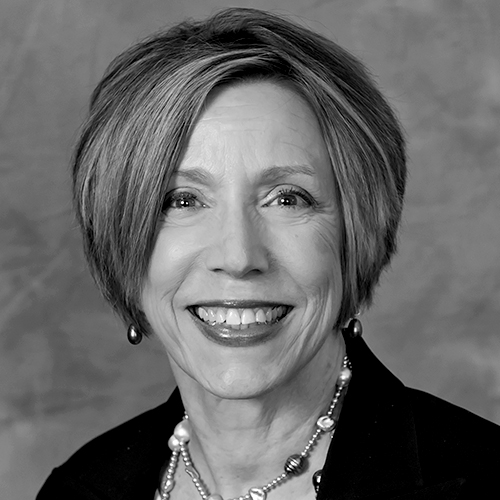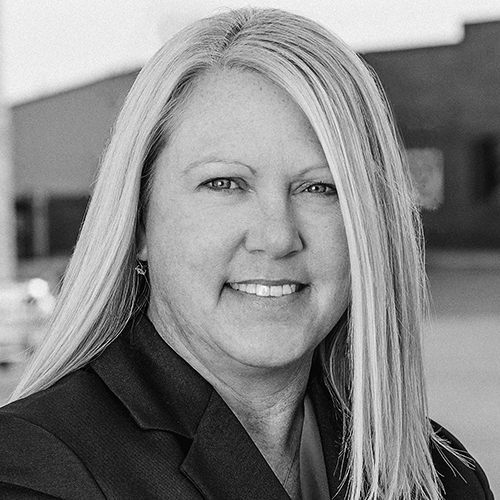In September 2007, Peter Hanson was in the process of adopting his daughter from Guatemala. During this process, Hanson—who had just started as the CFO of burger chain Five Guys—knew that he would only be given a week’s notice to fly to Guatemala and pick her up.
“I didn’t know when that time would be, so I did explain that to the family, the Murrell family, who owns Five Guys,” Hanson says. “They said they had no problem. That’s where they talked about how important it is to have a life with family and work balanced.”
Now, Hanson is celebrating his ten-year anniversary with the company. As an older father who doesn’t want to miss out on raising his daughter, he says he appreciates the work/life balance that Five Guys and the Murrell family promote, and he extends that sentiment to his team members. He also says that it’s one of the benefits of working for a privately owned company.
“When you work for a public organization and you’re reporting to shareholders, they don’t care about your work/life balance,” Hanson says. “They care about profitability and their dividends and things like that. The Murrells, of course, want to be profitable and make money, but just as long as we’re always having fun.”
Hanson hasn’t always had the benefit of a good work/life balance, though. When he was in college, his career path was disrupted by a family tragedy, which tipped the scale in the direction of life and family.
When he was eighteen years old, Hanson was studying computer science, learning programming languages such COBOL, RPG 2, and more, when his father died suddenly. In turn, he left school, moved back home, and began to work to help support his mother and younger sister, who was just eight years old at the time. Finally, when he was looking to return to higher education, he realized that his previous career plan was not going to work.
“My dad was a cameraman,” he says. “I was supposed to go to school for four years and then go back to where he worked, the union in New York City, and become a cameraman myself. After he passed away, my mom didn’t want me to do that.”
To help determine what he should do, Hanson sat down with an uncle who helped guide him in his decision. Together, they looked at his skills, his grades, and what he wanted to do. At twenty-three years old, Hanson decided to attend school again—this time to study accounting. Two years later, he graduated with a bachelor’s in accounting from George Mason University and went on to pass the CPA exam.
Hanson began his career as an accountant at marketing data and analytics company ComScore Inc., and a few years later, he accepted the position of corporate controller at Comstock Homebuilding Companies Inc., now known as Comstock Holding Companies Inc. There, his work/life balance shifted again, this time back in the direction of work.
He began at Comstock in November 2003, and in March of 2004, the company’s president called Hanson into his office and let him know that the company would be going public, all while it was going through an audit—and the staff beneath Hanson was not ready for the herculean task at hand. “It was gruesome,” Hanson says.
For the next six months, Hanson worked overtime, spending countless hours at the office to get the company’s accounting straight in order to go public until the company filed its S1 in September and finally got listed on NASDAQ on December 14, 2004. Having never taken a company public before, Hanson saw the value in the process, despite the overload of work.
“It was a great work experience, even though it was grueling,” he says. “It was like being back in college and you’re pulling all-nighters. I can’t tell you how many times I slept at the office and worked weekends. I got letters from my homeowner’s association saying that my lawn needed to be cut. I was neglecting my property, so the company would take care of that for me and my family. But it was a great experience. There’s nothing like going public and being right in the middle of it or being an intricate part of that process. It was rewarding.”
In 2007, though, Hanson began to find the work at Comstock less rewarding, and he began seeking a new challenge. He wasn’t quite sure what he wanted to do, though. He interviewed with a similar company, Beazer Homes, and even thought about opening his own accounting firm. Then, a friend of his let him know about Five Guys. This friend was assisting Five Guys’ owners and executive management team in recruiting a CFO. But Hanson already knew about the company.
“I was a customer before I was an employee,” he says. “When you’re working with auditors, there can be a lot of late nights. You’re occasionally bringing in food for everybody. They would bring in Five Guys every now and then, and I just craved that.”
Hanson liked the concept behind the restaurant chain and was intrigued, so he chose to look into it some more while he went through the interview process at Beazer. When he met the Five Guys’ general counsel for an interview, Hanson was surprised to meet him at a warehouse that was being converted from the Five Guys bakery to offices.
At the end of the day, he began to lean more toward the position at Beazer because of its proximity to his home. So, Hanson contacted his friend who had introduced him to Five Guys and let him know he wasn’t going to take the CFO position, citing how far away the office was from his home. The friend responded with another proposition: Hanson only had to come in on Tuesdays. Although he doubted he could efficiently run an accounting department with only one day a week in the office, the idea piqued his interest.
“I said, ‘Alright, I’ll give it a shot, and if I don’t like it in six months, I can always find another job or go back to what I was doing in the home-building industry,’’ he says. “I don’t regret the fact that I accepted the position at Five Guys, and here I am, ten years later.”
Over the past ten years, Hanson has overseen the accounting department while the company has grown exponentially. Even with the economic recession of 2008, Five Guys has grown by huge numbers every year Hanson has served as CFO. In fact, from 2006 to 2016, the company grew about 4,727 percent in terms of revenue growth and 1,150 percent in store growth. By 2016, the company had a total revenue of $531.3 million, with system-wide sales in excess of $1.5 billion. Today there are more than 1,400 stores. Hanson even got to oversee the company’s international expansion, which is something he’d never done before and found exciting. Throughout all of this, Hanson has had his fair share of success, but he couldn’t have accomplished it without the support and vision of the Murrell family.
“Once they get to know you after a year or two and they trust you, especially overseeing the company’s finances and taking care of all the other departments, such as IT, risk management, and stuff like that, they build confidence in you,” Hanson explains. “They always allotted me whatever time I needed to spend with my family as long as I was getting my job done.”

